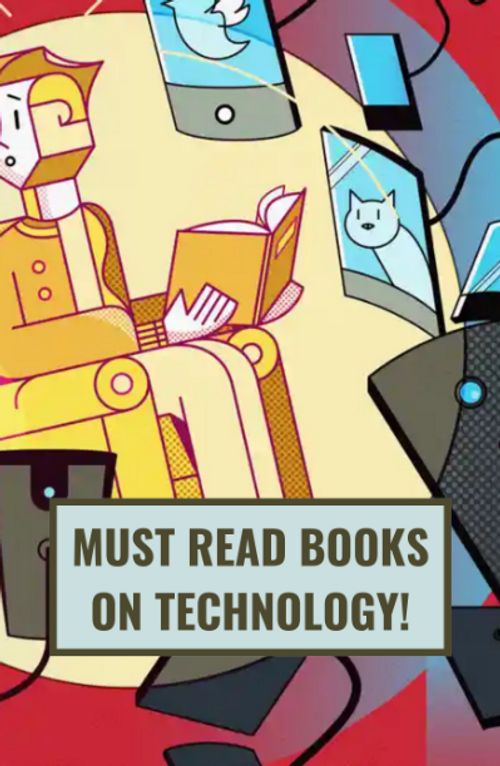Butlerian Jihad - Reading List!
Jun 09, 2022 · 2 mins read
0
Share
Introduction. In the Dune trilogy, humans wage a holy war against machines. This is the Butlerian Jihad, named after Samuel Butler, a writer who warned that humans were becoming second-class citizens to machines. 9 insightful books on the dynamic between humans and technology👇
Save
Share
Four Arguments for the Elimination of Television by Jerry Mander. Mander argues that television walls in awareness to narrow snippets of reality. It leaves people "adrift in mental space." A TV is an "influencing machine" that first "dims the mind" and then controls it.
Save
Share
Industrial Society and Its Future by Ted Kaczynski. Kaczynski is a philosophical fanatic serving life in prison for domestic terrorism - he sent mail bombs to people who he believed were worsening man's dependence on technology. His manifesto is a provocative, interesting read.
Save
Share
Shop Class as Soulcraft by Matthew Crawford. Crawford, a mechanic and thinker, asks an important question: how to live "concretely in an ever more abstract world?" His says we must start using our hands for more than just typing emails. Less spreadsheets, more physical tinkering.
Save
Share
The Technological Society by Jacques Ellul. Ellul argues that technology was initially created as a means, but then it rewired the world and our very human nature. Tech inevitably goes from servant to master. Ellul wrote a follow up book to this classic: The Technological Bluff.
Save
Share
Ellul: "Man was made to go six kilometers an hour, and he goes a thousand. He was made to eat when he was hungry and to sleep when he was sleepy; instead, he obeys a clock. He was created with a certain essential unity, and he is fragmented by all the forces of the modern world.”
Save
Share
Technopoly by Neil Postman. Postman: "Technological change is neither additive nor subtractive. It is ecological." Tech creates a new ecology that is un-synced with our aims. In the past, tools served cultural visions, but now we witness a "surrender of culture to technology."
Save
Share
Technics and Civilization by Lewis Mumford. Clocks fundamentally changed the world: "We effectively became time-keepers, and then time-savers, and now time-servers with the invention of the clock.” Ability to keep time made labor a sellable commodity, creating our modern world.
Save
Share
Butlerian Jihad fiction reading list: In Feed by M.T. Anderson, a brain chip connects us to the internet. Brave New World explores a timeline where everyone is chemically content but spiritually empty. 1984 is about the totalitarian potential of mass surveillance.
Save
Share
Butlerian Jihad watch list. Gattaca argues that genetic engineering will trap us as much as empower us. Her shows us humans in one-sided, empty relationships with artificially intelligent chat bots. WALL·E shows the nightmarish overlap of a consumerist culture and advanced tech.
Save
Share
0
